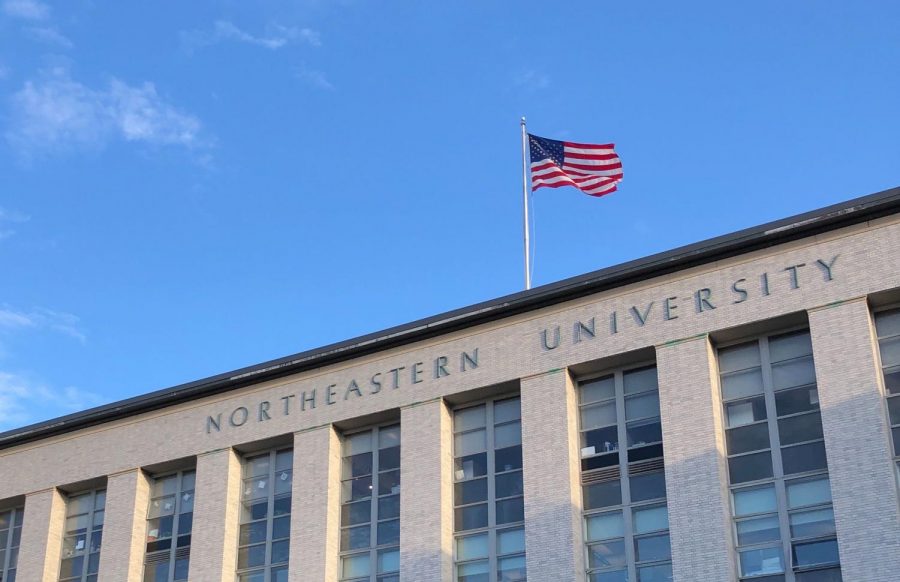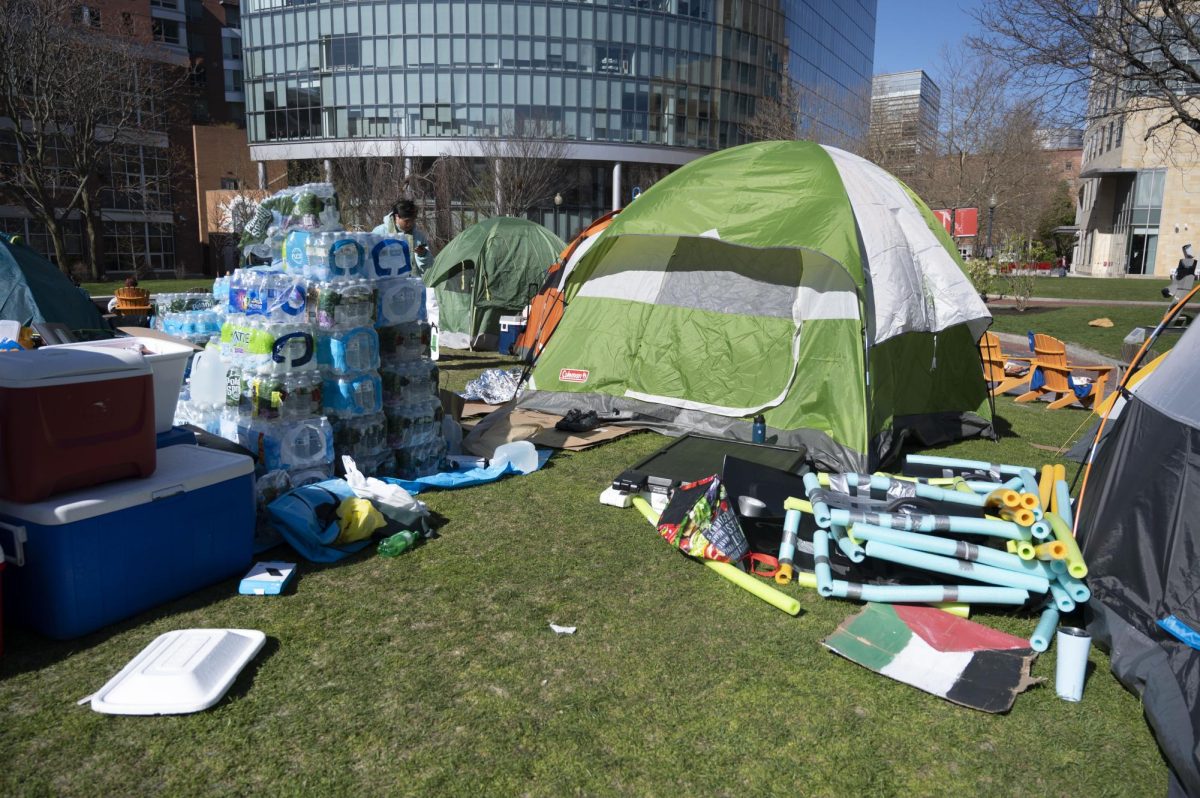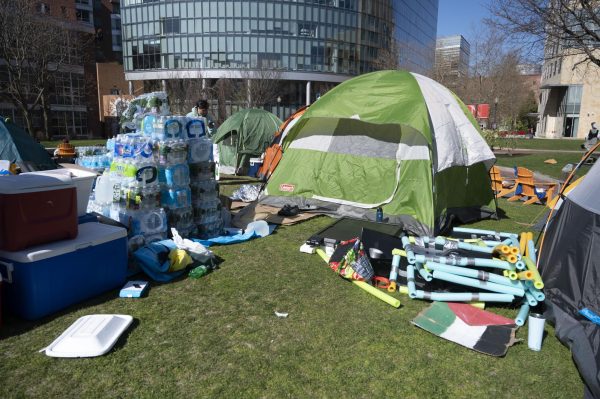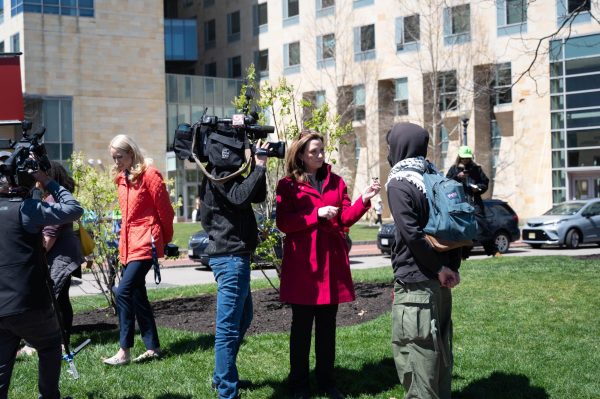Faculty, staff hold final senate meeting of the fall semester
Northeastern faculty discussed COVID-19 and the spring semester during the Dec. 2 senate meeting.
December 7, 2020
Faculty members met Dec. 2 for the final faculty senate meeting of the fall semester. The meeting consisted of updates on the Student Advisory Committee, or SAC, Northeastern’s anticipation of a COVID-19 vaccine and pandemic regulations in the spring semester.
The senate also passed two resolutions, and Maureen O’Shea, director of institutional assessment and evaluation, gave an update on the Assessment, Evaluation, Feedback and Intervention System, or AEFIS. AEFIS is a new assessment system for student learning that was launched this semester for a number of courses.
Provost and Senior Vice President for Academic Affairs David Madigan gave a report mainly focused on COVID-19 testing, both throughout this semester and in the upcoming semester. He addressed the rise in cases in both Boston and on campus. Northeastern’s testing center saw more positive COVID-19 tests than usual as students returned from Thanksgiving break.
On Dec. 1, there were 22 positive cases among students and staff, the largest number Northeastern has seen this semester. Madigan said rates are a consequence of Thanksgiving break and travel.
“We’re watching this very closely, and we certainly assume that within the next few weeks, the campus population will decrease [as winter break starts],” Madigan said.
Northeastern is now focusing on the spring semester, especially after the recent announcements related to vaccine administration by the Centers for Disease Control and Prevention, or CDC. The university is currently planning for the vaccine, both in terms of acquiring the vaccine in due course and how it will be administered once available.
Sanjeev Mukerjee, professor of chemistry and chemical biology, raised a question on whether the university had heard from state or federal officials on what priority faculty and staff had in receiving the vaccine.
“The second priority [after healthcare workers] should be faculty and staff coming to campus,” he said.
Other questions and concerns were also raised on the issue of faculty and Ph.D. students being asked to be on campus next semester. Madigan said that nothing would be different from the fall semester in terms of faculty returning to teach in-person.
After these reports, two resolutions were brought up and unanimously passed by members. One was proposed by Rhonda Board, associate professor at the school of nursing, on guidelines for the 2020 merit and annual review cycle. The other was proposed by Vice Provost for Undergraduate Programs and Policies Bruce Ronkin regarding revisions proposal to the graduate council bylaws.
Ronkin’s proposal consisted of seven overall modifications to the bylaws regarding the graduate programs at Northeastern. These included changes to how many transfer credits are accepted, limiting the amount of times students can retake a graduate course and restricting the pursuit of an academic credential outside of a student’s program.
These changes were presented to the senate for consideration after a collective review by the council last spring. This is part of an annual cycle where the council seeks gaps in the bylaw.
Following these resolutions, O’Shea outlined the new plan for AEFIS, Northeastern’s assessment managing platform. She declared the mission to plan, deploy and continuously evolve the assessment of student learning and evaluation across Northeastern. AEFIS can be integrated with Canvas, the learning platform that Northeastern switched to this academic year.
The system allows student work to be assessed at the course level and helps to build an institutional history that will provide more information about student learning at Northeastern, O’Shea said. The system currently specializes in program assessment and the NUPath Core Curriculum, although experiential learning is also being considered.
The AEFIS platform and program assessment pilot launch is currently collecting data from 21 undergraduate and graduate courses and will be receiving information and feedback from these by the end of the semester. This system will be extended to more faculty taught courses in the upcoming spring semester.
“It’s really a self-evaluation of the program on what they’re teaching and how successful they are being,” said Thomas Sheahan, senior vice provost for curriculum and programs.
The next faculty senate meeting is expected to be held on Jan. 20.


















